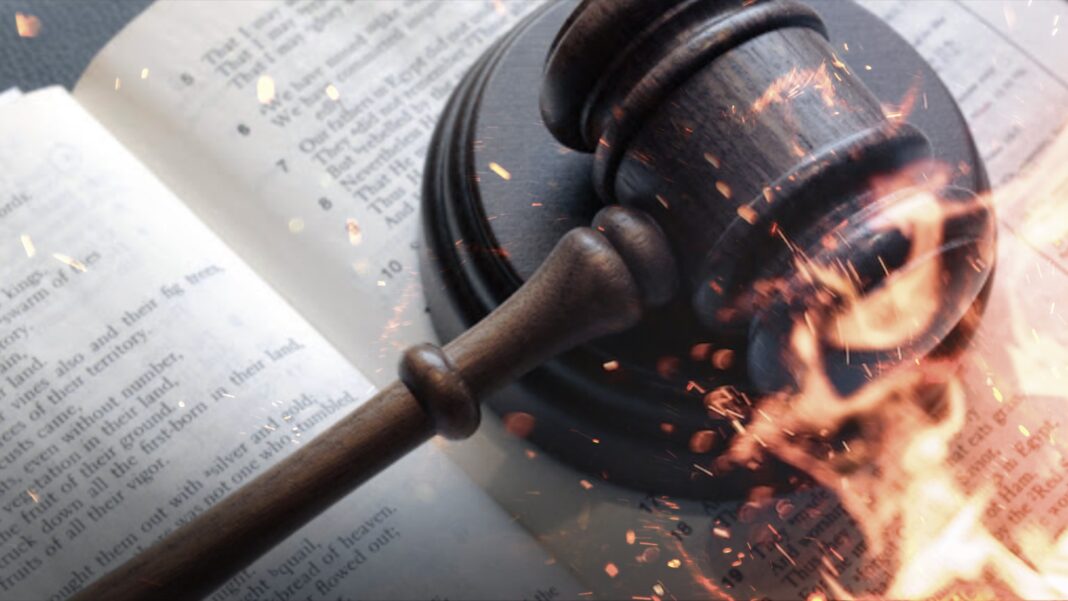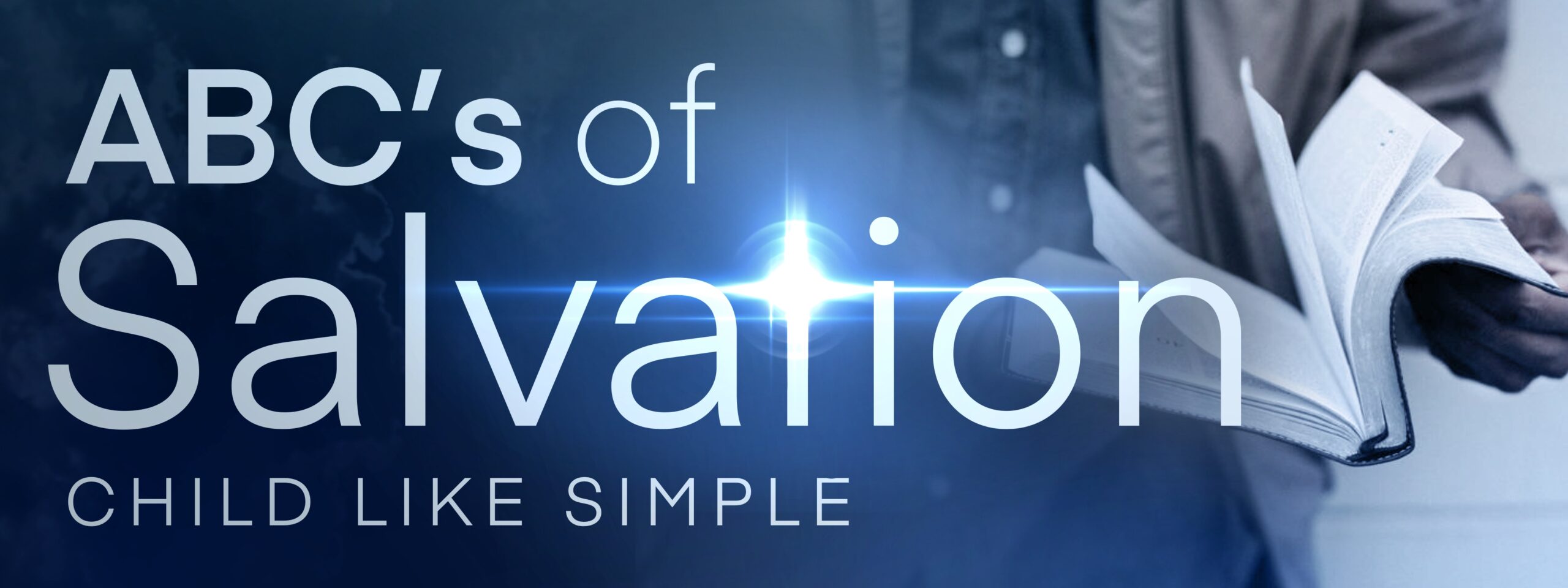The names Sodom and Gomorrah are infamous for God’s judgment upon the wickedness of the people who lived in those cities (Genesis 13:13). Sodom is seen as the epitome of wickedness and an expression of God’s wrath (Jeremiah 23:14).
Although critical scholars, because of their naturalistic mindset, view the account of Sodom’s destruction as just another legend or folk tale, the Bible clearly teaches it was a genuine historical event. Just as Jesus and the apostle Peter pointed to the flood as a guarantee of future judgment, so they both also pointed to God’s judgment of Sodom by fire as a guarantee of future judgment:
Luke 17:26-32 KJV – “And as it was in the days of Noe, so shall it be also in the days of the Son of man. They did eat, they drank, they married wives, they were given in marriage, until the day that Noah entered into the ark, and the flood came, and destroyed them all. Likewise also as it was in the days of Lot; they did eat, they drank, they bought, they sold, they planted, they builder; But the same day that Lot went out of Sodom it rained fire and brimstone from heaven, and destroyed them all. Even thus shall it be in the day when the Son of man is revealed. In that day, he which shall be upon the housetop, and his stuff in the house, let him not come down to take it away: and he that is in the field, let him likewise not return back. Remember Lot’s wife.”
2 Peter 2:5–9 KJV – “And spared not the old world, but saved Noah the eighth person, a preacher of righteousness, bringing in the flood upon the world of the ungodly; And turning the cities of Sodom and Gomorrha into ashes condemned them with an overthrow, making them an ensample unto those that after should live ungodly; And delivered just Lot, vexed with the filthy conversation of the wicked: (For that righteous man dwelling among them, in seeing and hearing, vexed his righteous soul from day to day with their unlawful deeds;) The Lord knoweth how to deliver the godly out of temptations, and to reserve the unjust unto the day of judgment to be punished:”
Just as with the days before the flood, Jesus spoke of the days before the destruction of Sodom as a time when people were indifferent and solely concerned with the things of this life: eating and drinking, buying and selling, planting and building. In other words, people were caught up with material things of life, which caused them to have a lack of concern for the things of God. Then the destruction by fire and sulfur came quickly and unexpectedly, destroying them all.
Likewise, when Peter spoke of the judgment that took place at Sodom and Gomorrah, turning it to ashes, it was to foreshadow the coming future eschatological judgment by fire (2 Peter 3:7). This final eternal judgment, however, will not engulf everybody. Just as God preserved Noah and seven others in the judgment of the flood, and Lot in the judgment of Sodom, he will also spare the godly while judging and destroying the ungodly (2 Peter 2:9).
Given the significance that both the Old and New Testament place on the destruction of Sodom as a warning of future judgment, it is important to understand this event.
Why Was Sodom Destroyed?
In Genesis 13, because Abram (Abraham) and his nephew Lot have become affluent in flocks and herds, strife breaks out between their herdsmen as the land can no longer sustain all their possessions (Genesis 13:6–7). Abraham, therefore, proposes that he and Lot separate, and he gives Lot the choice of the whole land (Genesis 13:9). Lot chose “all the Jordan Valley” (Genesis 13:11) because it was “well-watered everywhere like the garden of the Lord, like the land of Egypt …” (Genesis 13:10). Abraham settled in the land of Canaan, by the Oaks of Mamre at Hebron (Genesis 13:18), but Lot journeyed eastward and “settled among the cities of the valley and moved his tent as far as Sodom” (Genesis 13:12).
Although Lot was not living in Sodom at this point, it did not take long for Lot to move into that wicked city (Genesis 14:12). It seems that Lot did not influence Sodom, but rather Sodom influenced Lot. From the time that Lot left Abraham to his living in Sodom and its destruction, a little over 20 years had passed.
In Genesis 18, the LORD appears to Abraham and announces his intention that Sodom is to be destroyed because its sin is “very grave” (Genesis 18:20). The men of Sodom were previously described as “wicked, great sinners against the LORD” (Genesis 13:13). The latter term “wicked” (raʿ) is also used to describe the people at the time of the flood (Genesis 6:5, 8:21) and indicates that the people of Sodom’s “sins deserved the same catastrophic response from God.” But what was the wickedness of Sodom?
The main issue that Genesis 19 focuses on is the fact that all the men of Sodom want to “know” (yādaʿ) the angelical visitors: in other words, to have sexual relations with them (Genesis 19:4–5; cf. Genesis 4:1). It is no wonder that the sin of Sodom was described as “very grave” as the men of Sodom had “unnatural desires” (Jude 7) wanting to commit a shameless act (cf. Romans 1:26–27).
Nevertheless, it is important to realize that Sodom was guilty of many other sins than homosexuality. In later biblical history, the prophets compared the social injustices committed by God’s chosen people Israel/Judah to the people of Sodom: gluttony, prosperous ease, not aiding the poor, haughtiness, injustice (Isaiah 1:17, 3:9), adultery, lying, and an unwillingness to repent (Jeremiah 23:14).
The prophet Ezekiel also points out that the guilt of Sodom was: “pride, excess of food, and prosperous ease, but did not aid the poor and needy. They were haughty and did an abomination before me” (Ezekiel 16:49–50). Although some argue that Ezekiel does not mention homosexual behavior as one of the sins of Sodom, this overlooks the fact that the Hebrew word abomination (tôʿēbâ) refers to sexual immorality, specifically homosexual intercourse proscribed in Leviticus 18:22; 20:13 (cf. 1 Corinthians 6:9).
In the end, God justly judged Sodom and Gomorrah not only because of its wicked behavior, but because ten righteous people could not be found there (Genesis 18:23–32). Even though he had lived in Sodom for just over 20 years, it seems righteous Lot (2 Peter 2:7–8) had no impact upon the city of Sodom.
The Destruction of Sodom
The destruction of Sodom (c. 2067 BC), takes place in Genesis 19 after Lot, his wife, and two daughters, with the help of the two angels, escape Sodom and flee to Zoar (Genesis 19:20–22).
Genesis 19:23–25 KJV – “The sun was risen upon the earth when Lot entered into Zoar. Then the Lord rained upon Sodom and upon Gomorrah brimstone and fire from the Lord out of heaven; And he overthrew those cities, and all the plain, and all the inhabitants of the cities, and that which grew upon the ground.”
Moses uses the language of the flood in Genesis 6–7 to describe the destruction of Sodom. Just as God sent the waters of the flood that “rained” (mamṭîr, Genesis 7:4) down on the earth in the days of Noah so he “rained” (himṭîr) down sulfur and fire on Sodom and Gomorrah in a fiery deluge. The fiery deluge “destroyed” (šaḥēt) Sodom, as the earth was destroyed by water at the time of the flood (see Genesis 13:10, 19:29, cf. 6:13, 17).
Through the raining down of sulfur and fire, God “overthrew” (hăpōk) Sodom, the valley, all the inhabitants, and everything that grew on the ground. Everything was destroyed: it was a total catastrophe. The Greek translation of the Old Testament translates the Hebrew word hăpōk as katestrephen, which is the source for the word catastrophe. The same word is used in the New Testament when Jesus cleanses the temple and “overturned [katestrephen] the tables of the money-changers” (Matthew 21:12).
The apostle Peter’s description of Sodom’s “extinction” (katastrophe) fits well with the judgment brought upon the city that turned it to ashes (see 2 Peter 2:6). After God overthrew Sodom, the whole land was burned so that nothing could grow, and no person would dwell in it again (see Deuteronomy 29:23; Isaiah 13:19–20; Jeremiah 49:18, 50:40).
Even though Lot is considered righteous, his life is a lesson for Christians who are caught up with the things of this world. In the end, what had attracted Lot to Sodom (the beautiful land, Genesis 13:10) was gone. Remember Lot started his life living under the blessing of his relative Abraham (Genesis 12:2–3), but because “he saw” the beauty of the Jordan valley, he moved towards Sodom and later became a resident of that wicked city (Genesis 13:10–12, 14:12). Not only did he “linger” on the day of its destruction, escaping only by the mercy of God (Genesis 19:16), but he lost his wife (Genesis 19:26) and sons-in-law (Genesis 19:14). Not only that, but Lot’s only offspring (Moab and Ammon) were the result of his daughters sexually exploiting him (Genesis 19:33–36), while his last years were spent living in a mountain cave like a recluse (Genesis 19:30).
“Written for our Instruction”
Jude uses the catastrophic judgment that came upon Sodom and Gomorrah as an “example” for the punishment of the ungodly, which is characterized as “eternal fire” (pyros aiōniou, Matthew 25:46).
Jude 7 KJV – “Even as Sodom and Gomorrha, and the cities about them in like manner, giving themselves over to fornication, and going after strange flesh, are set forth for an example, suffering the vengeance of eternal fire.”
The knowledge that there is a future judgment to come should motivate us to warn those who are still in their sins that the only way to escape the coming judgment is by trusting in the Lord Jesus Christ, the one who has taken the judgment of sinners upon himself so that we can live righteous lives in this present evil age (1 Peter 2:24; Galatians 1:4).













